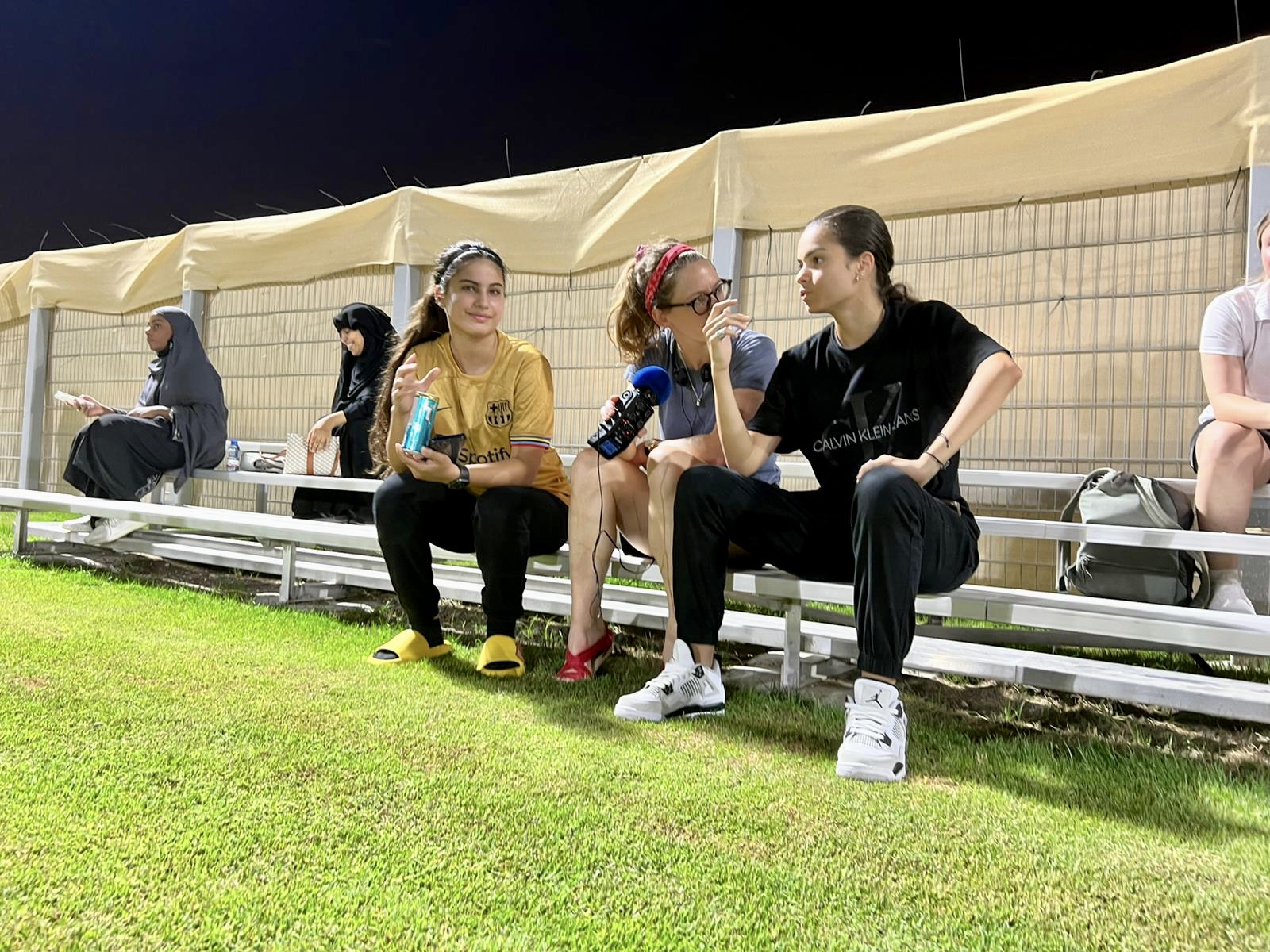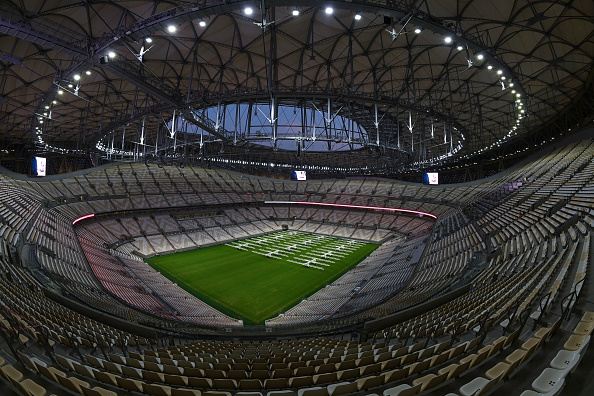
Returning to make a show in Qatar this week was a bizarre experience – everything and nothing changing in the three years since I had lived there. It’s thrown up so many different, and huge, things we need to talk about before the . But let’s start somewhere I didn’t expect – with the women I met there.
The first football I saw on my night-flight, half-awake arrival was being played by girls. A friend twice removed had told me about a seven-a-side tournament for women taking place during the desert’s cooler months (September to March). The first two games happened to be slated for the day I landed. Could I go? She was happy to take me and try to negotiate our way in, but my co-producer Finn would have to stay in the hotel. Men were forbidden.
We parked up outside the university ground in the so-called Education City and could immediately hear cheering. The pitch was invisible from the car park, and as we walked up it became clear why. Every inch of the surrounding netting had been covered with heavy gauze to prevent men looking in. Two female guards sat on the door, looked us up and down, and opened the gate.
Inside there were around 70 women sitting, watching and waiting to play, making the noise of a crowd ten times as strong. The pitch was well-kept and beautifully flood-lit; the standard very Sunday league.
The women’s national team were launched to great fanfare as part of Qatar’s World Cup bid in 2010 but they have not played a single competitive fixture since 2014. I believe I’m the only member of foreign media to have seen Qatar’s female footballers play this year.
One talented Qatari woman I spoke to said she did not even play with the national team because the standard was so low. There is no regular training and ‘it isn’t taken seriously’.
She does not believe the World Cup has had any impact on women getting to play football in the country and doesn’t think the national team exists in any meaningful sense. One reason for that is no one can cover it.

‘I would say probably 70 per cent of the girls don’t want to be filmed or taken pictures of,’ she said. ‘And I think honestly, most of the time it’s not their choice. It’s probably their parents’ choices or something. I think if it was up to the girls they could still dress modestly and play.’
Players here had named their sides Leeds United and Al Rayyan (one of Qatar’s top men’s teams) but they had no connection with either, and they had another problem. Two girls were desperate to be professionals but since they were never allowed to film their games, how could they ever be scouted? Was this half-arsed tournament to be the limit of their footballing opportunities?
‘Take my picture!’ They kept saying. ‘Tweet about us!’
The next day we drove down to a domestic men’s game. The equivalent of a League Cup match, featuring the real Al Rayyan in a derby. There was a similar number of spectators here, although this time only one other woman in the stands.
I chose this game because it was being held where England will be based during the World Cup, and as you might imagine the set-up was rather different. The stadium had a capacity of 20,000. There were multiple concession stands by the entrance, luxurious seating arrangements and TVs showing the game throughout the venue.
The day before, Al Rayyan player James Rodriguez (yes he of the 2014 World Cup, Real Madrid and Everton) had moved to Greek side Olympiacos on a free transfer. In short, everything looked much as you would expect at a professional men’s game anywhere in the world, except for the dearth of fans. Afterwards I asked the guy in charge of football development in the league if any of that development work might be used to help female footballers in Qatar.
Women are the future, he told me, but for some reason there doesn’t seem to be much interest in women’s football in this country yet.
Someone might need to tell the girls in Education City that.
The sports broadcaster, a regular on BBC’s Fighting Talk and Final Score and host of The Drop In from the Football Ramble, which she has taken to Qatar to find out how ready the tiny nation is to host the World Cup
, .
, and .



















